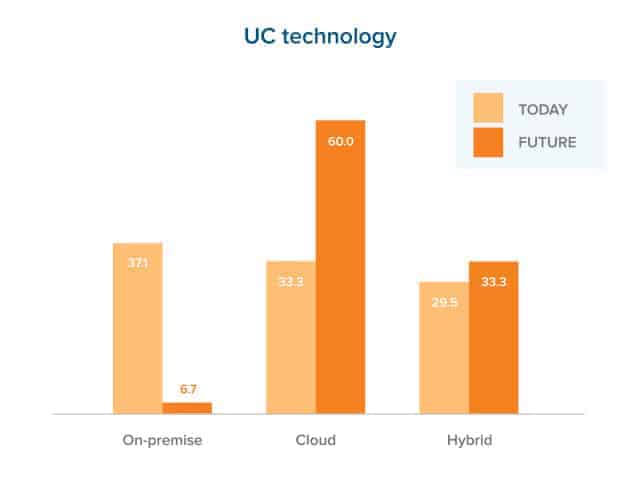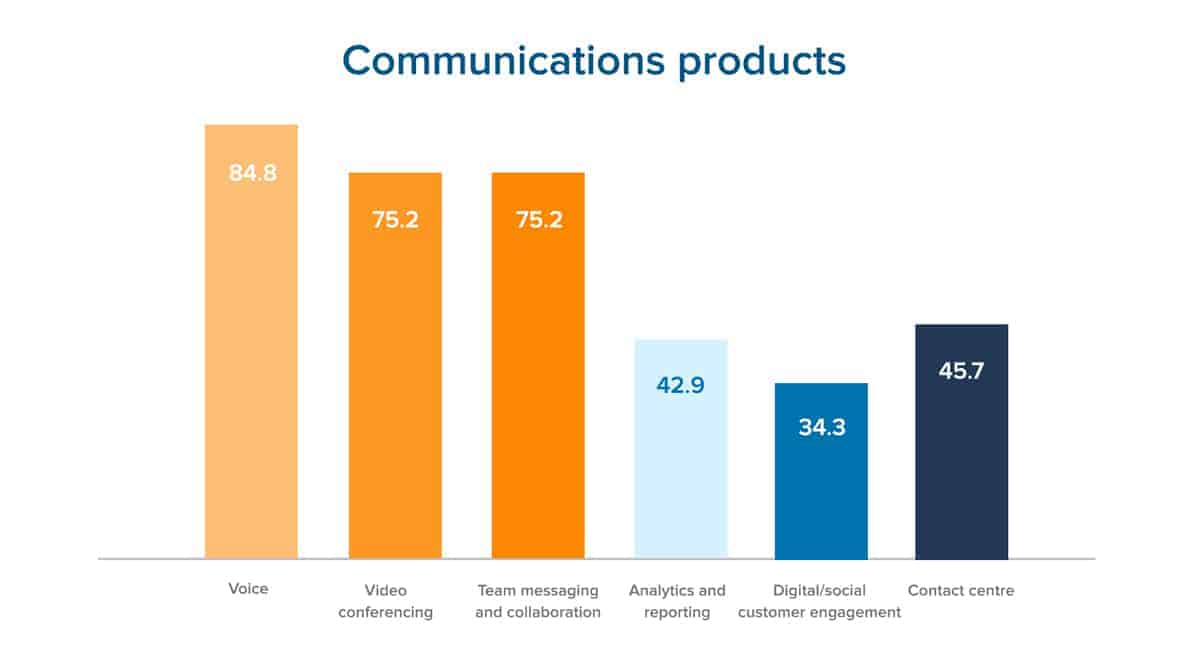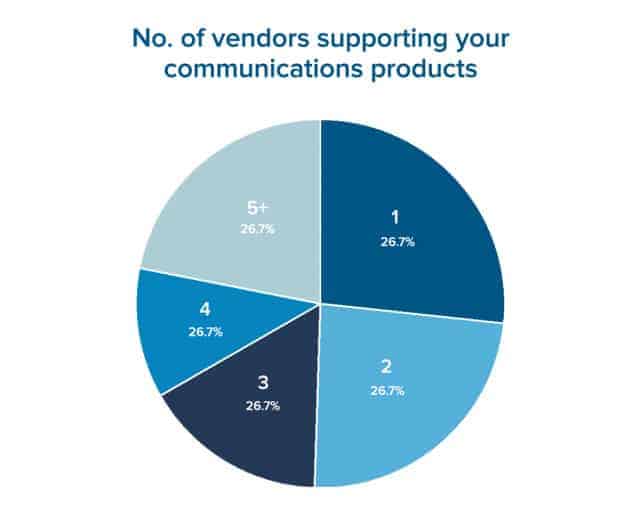In today’s era of digital transformation, more organisations are realising the need for a single unified communications (UC) experience to streamline their workflows.
Unified communication enables a transformation in the way people collaborate, share content, and manage projects. It offers an integrated experience across voice, video, online meetings, app integrations, contact centre and more, with team messaging at the core — whether employees are using their mobile devices, sitting at their desktops, or gathered in meeting rooms.
Ultimately, UC allows greater agility and productivity across global workforces, all through one simple user interface. To gain insight into whether UK organisations are embracing UC, RingCentral ran a survey at UC Expo 2019 asking professionals about their company’s current communications environment.
Over 90% of survey respondents reported that they will be moving to cloud and hybrid UC in the future. Click To Tweet
The status of UC in the UK
The results of the survey indicate that UK businesses are in the process of transitioning to the cloud and can do more to consolidate their communications. We received over 100 responses, of which 46% comprised of organisations with 500+ employees, 3% with 250 – 499, 17% with 50 – 249, and 32% with less than 50 employees.
Over 90% of survey respondents reported that they will be moving to cloud and hybrid UC in the future. This is consistent with recent industry trends and Gartner’s prediction: “By 2021, 90% of IT leaders will not purchase new premises-based UC infrastructure — up from 50% today — because future cloud UC offerings will be far ahead in terms of features, functions, portals, analytics and dashboards.” There was a relatively even split between companies currently using on-premise, cloud, and hybrid UC technology.

In addition to types of UC technology, we asked survey respondents what types of communications tools they are currently using. Voice, video conferencing, team messaging and collaboration were the most popular. However, when asked how many providers are used to provide those services, over 73% of survey respondents reported to be using more one provider.
While there may be a variety of different reasons for this, using multiple vendors to provide communications solutions introduces friction if the services are not tightly integrated. Cloud providers like RingCentral enable businesses to consolidate and deploy a single phone, fax, web meetings, video, and audio conference solution across the entire organisation, for a truly unified experience.
This not only centralises management but eliminates shadow IT tools and applications to help mitigate cybersecurity risks at both headquarters and remote locations.

Why are unified communications so important?
A global survey of 2,000 knowledge workers across all industries found disparate workplace apps to be more disruptive than one may think. Seventy percent of respondents said their communications volume is a challenge to getting basic work tasks done and that they toggle between different apps up to 10 times an hour.

To end the workplace chaos, 66% of workers want a single platform that integrates all their communications. They believe a unified platform would help them achieve better workflow (67%), be more productive (65%), and help work feel less chaotic (62%).
In a different survey by No Jitter, enterprise IT professionals indicated that the overwhelming majority of their workers use disparate solutions for audio calling/conferencing (81%), video conferencing (83%), content sharing (86%), and messaging/chat apps (88%).
By streamlining communications and enabling a truly collaborative culture, UK businesses will be empowered to work more productively and as one unified unit. Click To Tweet
The inability for users to collaborate from within a single, unified solution creates unnecessary barriers and hinders effective teamwork. Both individuals and teams bring in their own tools of choice, which only amplifies the problem and hampers productivity in the modern workplace.
The optimal choice is a communications provider that offers an open, cloud-based platform that supports a variety of conversational and collaboration modes — with team messaging at the core — and that makes integrating into other productivity tools easy.
By streamlining communications and enabling a truly collaborative culture, UK businesses will be empowered to work more productively and as one unified unit, which ultimately supports the business agility and speed to decision making necessary to remain competitive in today’s fast-paced world.
Originally published Jun 25, 2019, updated Jan 17, 2023
